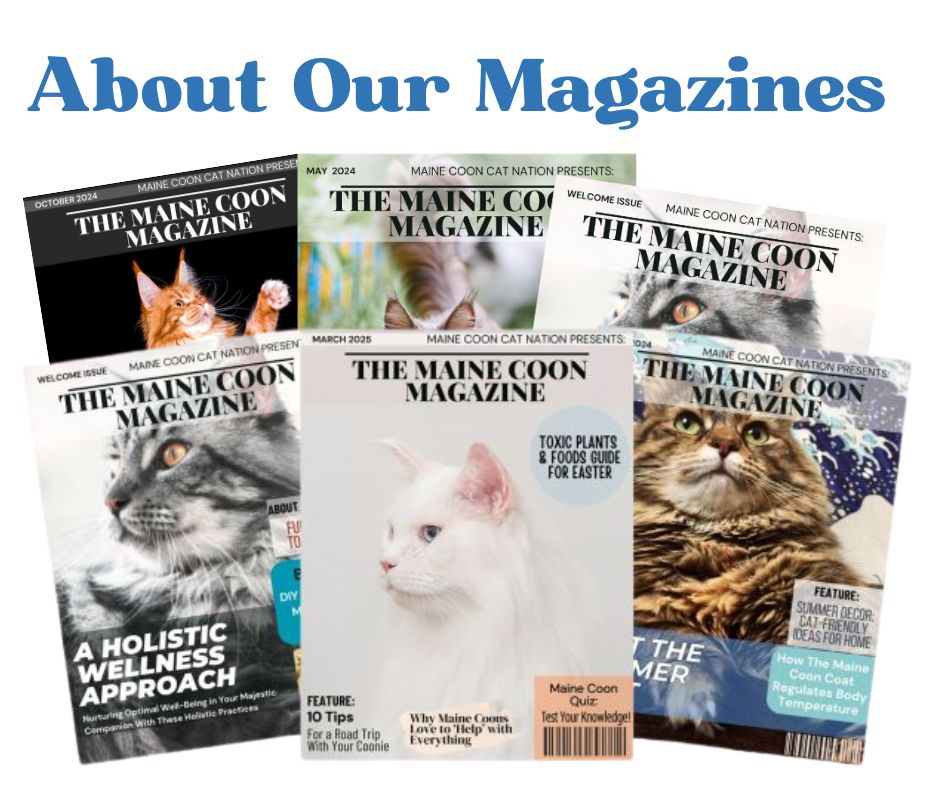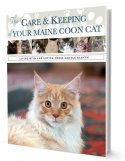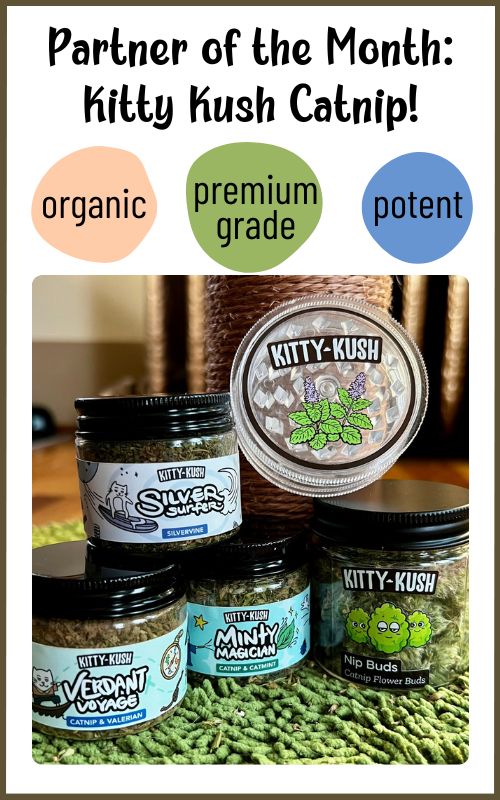- Home
- Maine Coon Cat Health
Maine Coon Cat Health
Guide to Common Issues and Problems
Welcome to our comprehensive section on Maine Coon cat health care!
Known for their gentle nature and impressive size, these beloved cats have unique health needs that set them apart from other breeds.
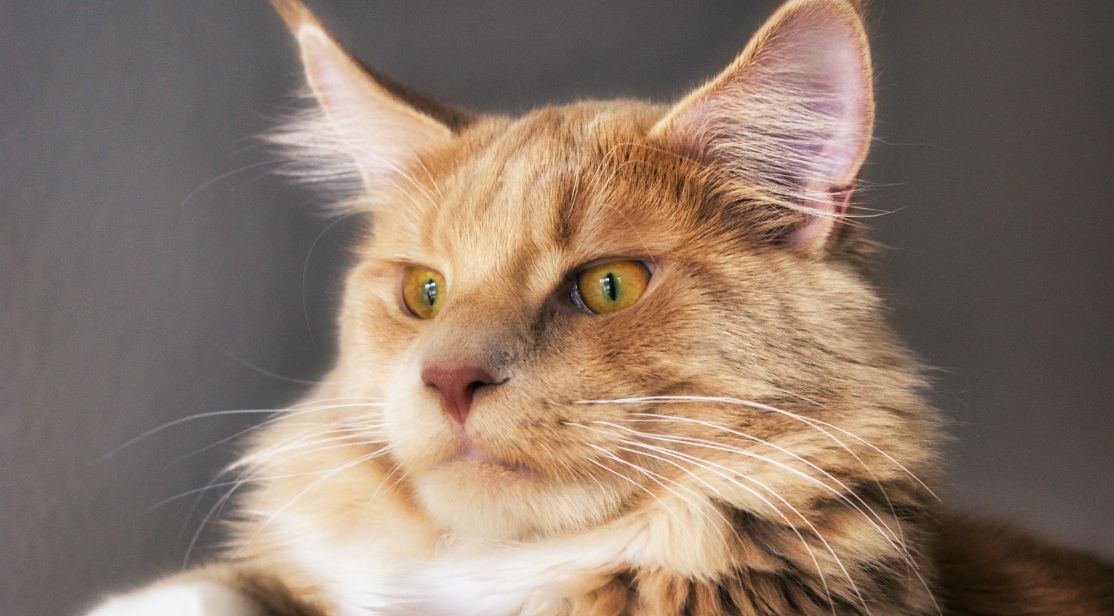
Unlike many other domestic cats, Coonies have unique characteristics that contribute to their charm and their health needs.
Understanding how to keep these magnificent cats in peak condition is key to providing them with a long and healthy life.
Just like any other breed, these beautiful felines have specific health considerations.
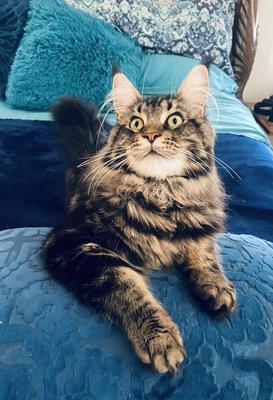
While they are known for their robust and hearty nature, there are potential health issues that owners should be aware of to support their well-being.
From nutritional needs to common hereditary conditions, each Maine Coon cat health section will guide you through essential aspects of keeping your gentle giant in top shape.
Your Coonie deserves the best, and we're here to help you every step of the way!
Genetically Inherited Health Issues
Each cat breed has its own common health conditions, and Coonies are no exception.
When caring for your Coonie, this is often one of the first health aspects that come to mind.
Maine Coon Cat Health Issues:
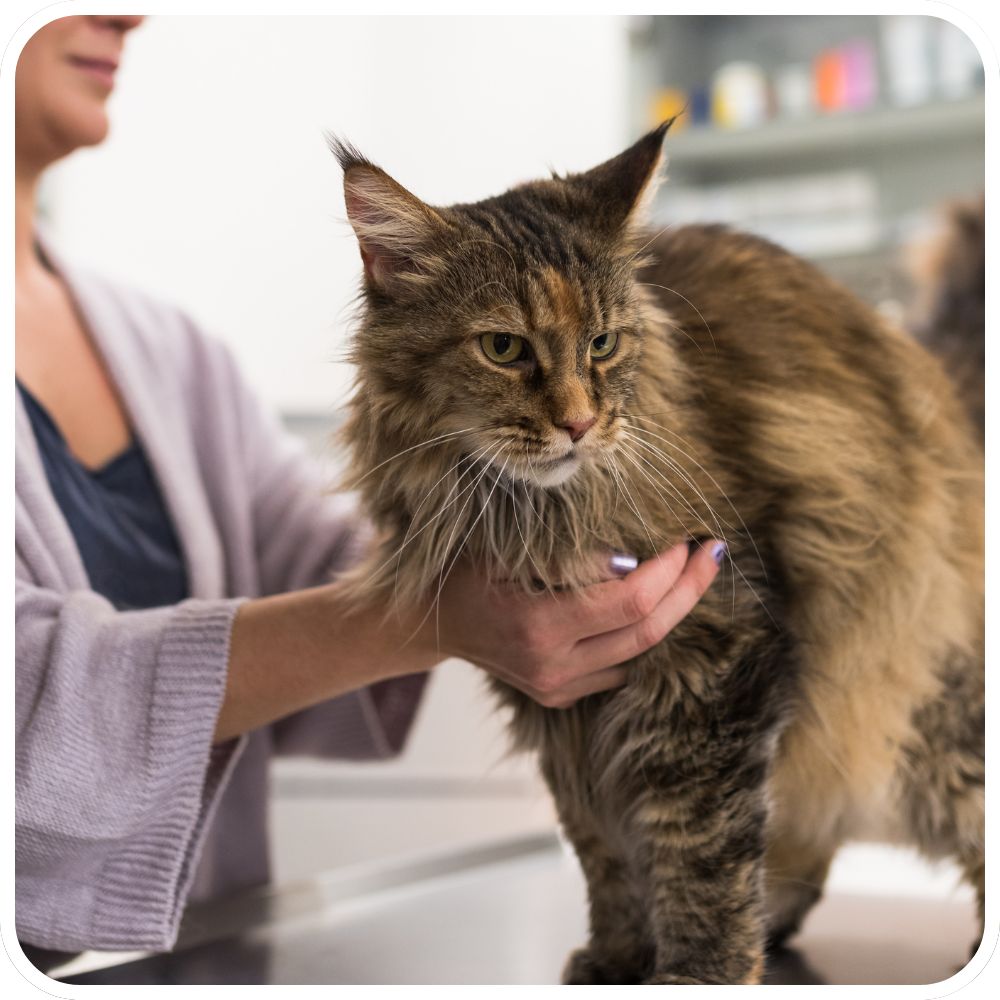
Maine Coon Cat Health Problems: To preserve the unique characteristics of any breed, cats must be bred within their breed.
This selective breeding, while necessary, often means fewer pairing options and a greater likelihood of passing on genetic predispositions.
Maine Coon breeders, like all responsible breeders, work diligently to maintain the health of their breeding cats.
By carefully selecting breeding pairs, they aim to minimize the risk of inherited diseases and genetic disorders being passed down to kittens.
There are specific genetically inherited conditions that Coonies can be prone to, including feline hypertrophic cardiomyopathy (HCM), spinal muscular atrophy (SMA), and polycystic kidney disease (PKD).
HCM is a heart condition that causes the walls of the heart to thicken, while SMA affects the spinal cord's motor neurons, leading to muscle weakness and atrophy.
PKD, on the other hand, is characterized by the formation of cysts in the kidneys, potentially leading to kidney failure.
Understanding these health conditions and their genetic predispositions is crucial for both breeders and owners.
Regular vet check-ups and genetic testing can help in early detection and management of these inherited diseases.
If you have questions about Maine Coon cat health, we're here to provide the information you need to ensure your gentle giant leads a healthy and happy life.
Preventive Care
Routine veterinary care is the cornerstone of maintaining your Coonie's health.
Regular vet visits with vaccinations, parasite control, and dental care are essential to prevent common health problems.
Building a good relationship with your vet and scheduling annual check-ups will help catch any issues early and keep your cat in the best possible health.
And prior to that, choosing your Maine Coon kitten from a well-researched, ethical breeder with responsible breeding practices may be an even more important factor.
Hip Dysplasia
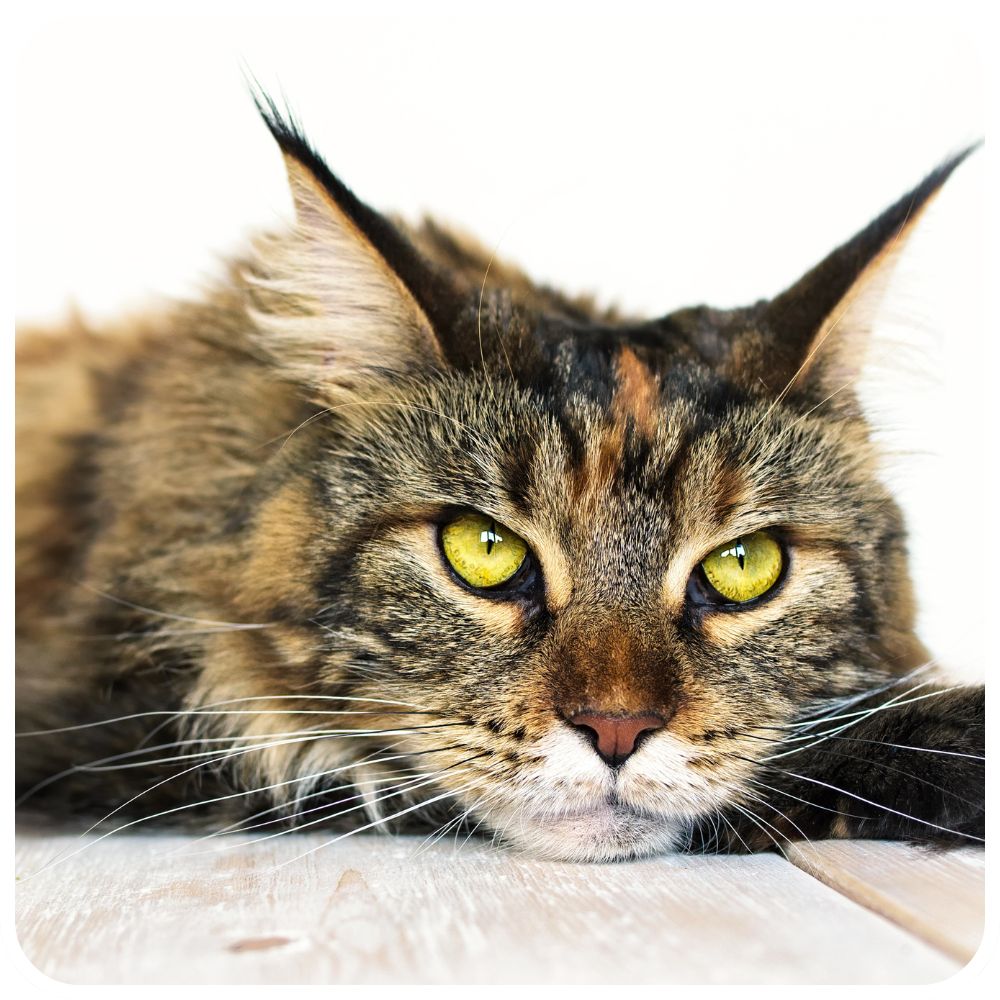
Hip dysplasia in cats can be a concern for any breed, including Maine Coon cats.
This condition, once thought to affect only dogs, is now recognized as a health issue in felines as well.
Hip dysplasia occurs when the hip joint does not develop properly, leading to instability and, eventually, arthritis.
The Maine Coon breed, due to their large size and weight, are at a higher risk for developing this painful condition.
As an inherited condition, hip dysplasia can be passed down from generation to generation.
It primarily affects the hind legs, causing discomfort and difficulty in movement.
While hip dysplasia can be very painful for affected cats, it is also treatable.
Early diagnosis and appropriate management, including weight control, pain relief, and in some cases, surgery, can help improve your Coonie's quality of life.
Regular vet check-ups and monitoring are essential parts of Maine Coon cat health, ensuring any issues are caught and treated promptly.
Maine Coon Cat Health Care
Unlike genetically inherited conditions, these Maine Coon cat health topics are, for the most part, under our control.
Which is great, because we all want them to be with us, and feeling well, as long as possible!
Declawing Cats
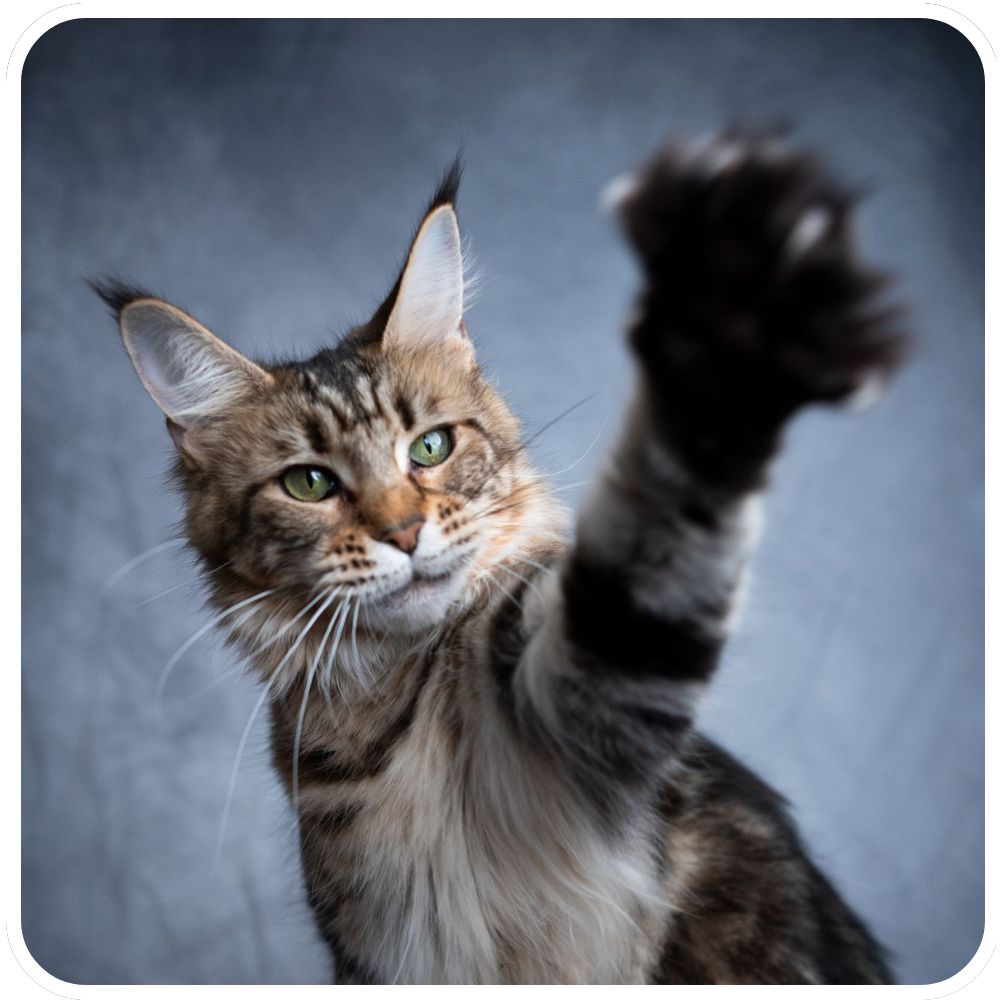
Reputable breeders address the issue of cat declawing before selling a kitten.
They ensure that potential Maine Coon owners agree never to have this procedure done. Here are some reasons why.
Declawing cats, including Maine Coons, involves the removal of the last bone in each toe, equivalent to amputating a human finger at the last joint.
This procedure is not only painful but also has long-term consequences for a cat's health and well-being. It can lead to behavioral issues, difficulty in walking, and chronic pain.
Experienced breeders take a firm stance against declawing due to its inhumane nature and the potential suffering it causes.
They make sure to educate potential owners about the implications of declawing and encourage alternative solutions for managing scratching behavior, such as providing scratching posts and regular nail trimming.
Whether your cat is a Maine Coon or another breed, it's crucial to be informed about the impacts of declawing.
Understanding why this procedure is discouraged can help you make better decisions for your cat's welfare and promote a healthier, happier life for your feline friend.
Related: When a reader shared their disappointment in not being able to preventatively declaw, it sparked a lively declawing discussion with a variety of anecdotal experiences.
Neutering and Spaying
It's natural to have concerns about neutering and spaying, but complications are rare, and the procedures are generally safe when performed by a qualified veterinarian.
Addressing common questions and debunking myths about neutering and spaying can help you make an informed decision.
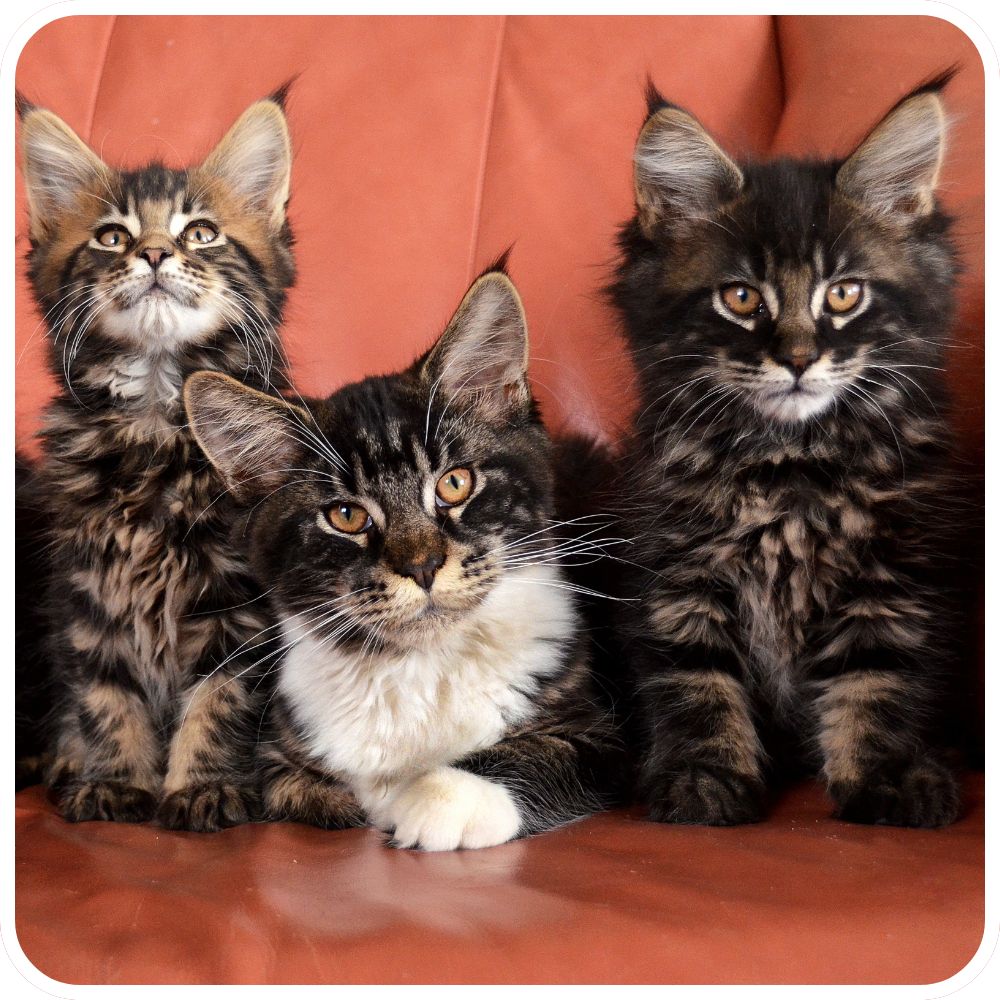
Neutering Your Maine Coon
Most owners assume that neutering their male Maine Coon is a given, but questions often arise, such as "When is the right age?" and "What are the risks?"
Neutering is a common procedure with many benefits, but it's important to understand all aspects before making a decision.
Neutering can prevent unwanted litters, reduce the risk of certain health issues, and curb undesirable behaviors like spraying and aggression.
The "right" age for neutering is typically between 4 to 6 months, but your vet may recommend a specific time based on your cat's health and development.
Understanding the pros and cons of neutering, along with the appropriate timing, ensures your Maine Coon enjoys a healthier and happier life.
Neutering and Spaying Questions and Answers:
These community discussions include when to do it, whether it affects the eventual size of a male, I.V.'s and more.
Cat Hairballs
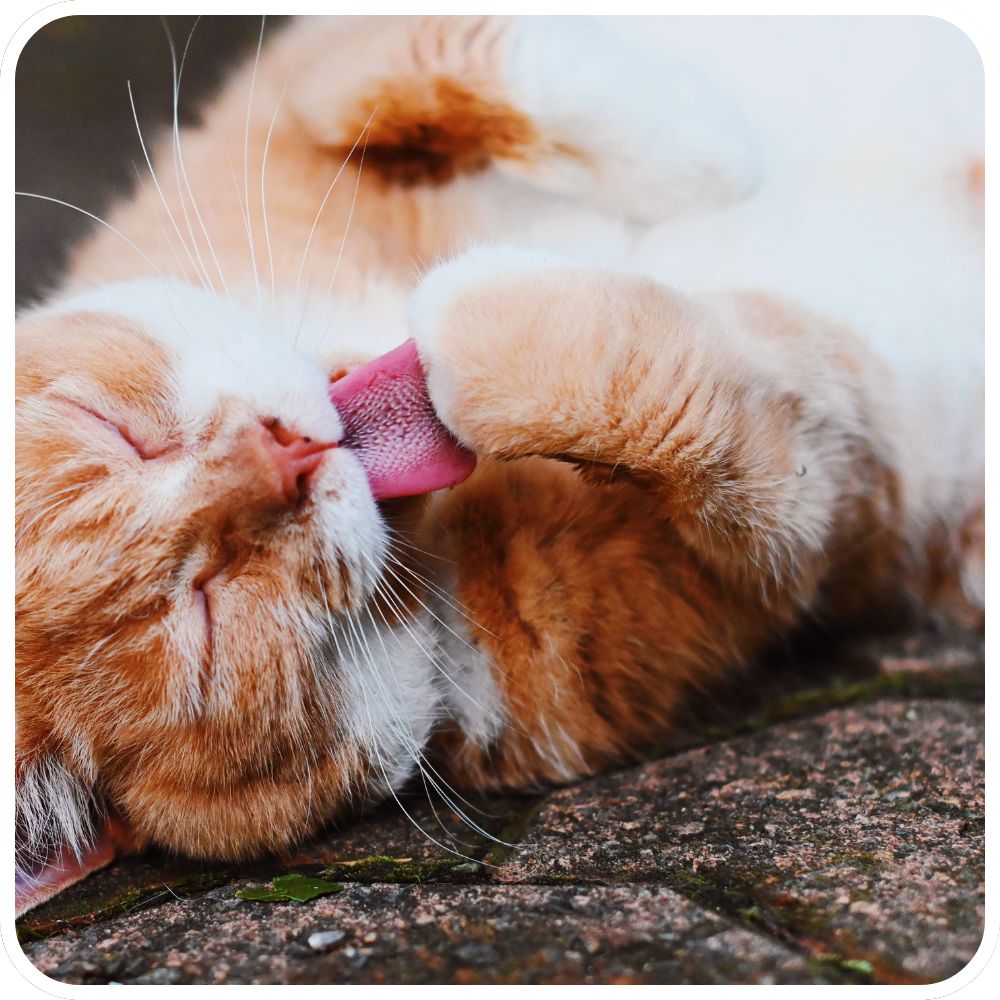
Why Do Cats Get Hairballs?
Cat hairballs are more than a nuisance! They result in worry, discomfort, and cat vomiting.
Learn what hairballs look like, what a blockage is, and how to prevent them.
Then, see our page on hairball remedies for lots of tips and techniques on eliminating hairballs in cats.
Hairballs and Coughing Questions and Answers: These community discussions are full of tips, tricks and advice.
Maine Coon Lifespan and Longevity
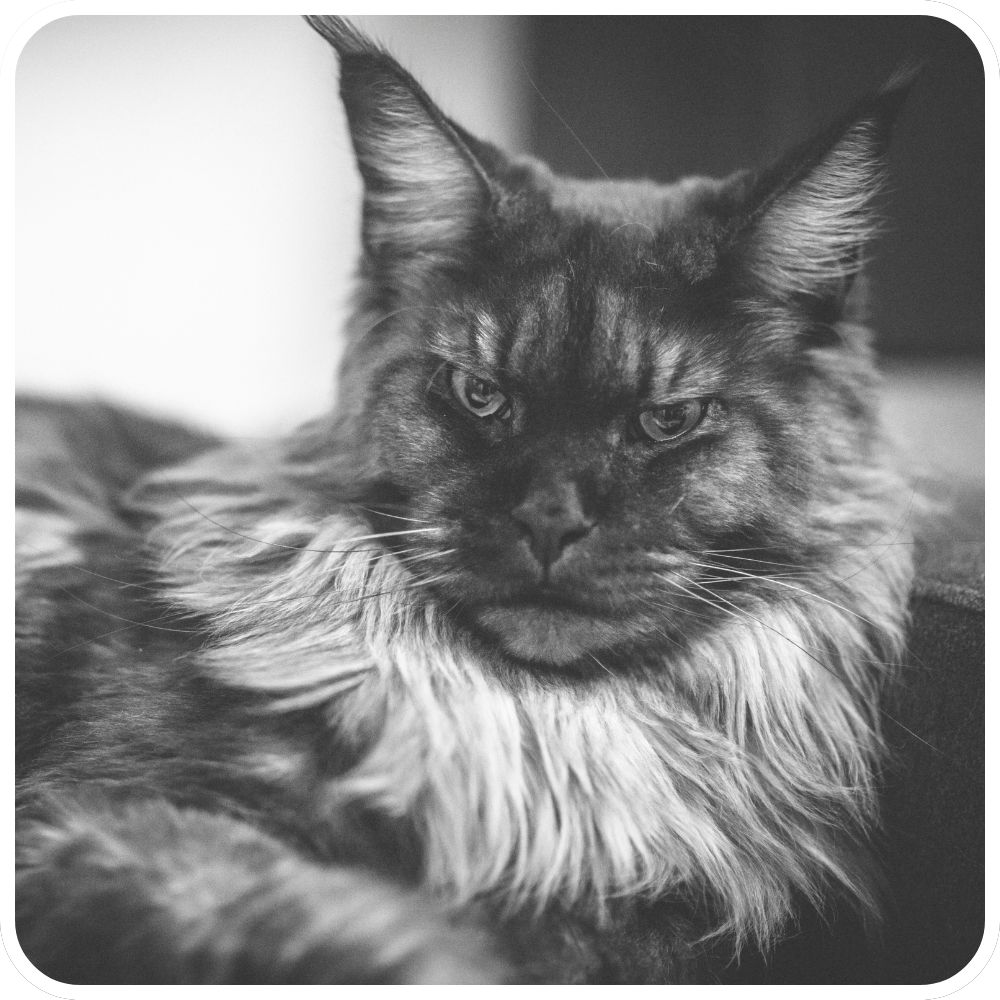
Maine Coon Cat Lifespan:
What is the lifespan of a Maine Coon cat? As devoted owners, we all want our gentle giants to live as long as possible!
Knowing how to support their longevity is crucial for providing the best care.
Among cat breeds, Maine Coons are known for their impressive lifespan.
It's not uncommon to see a Maine Coon featured in our Photo Galleries living to 15, 18, or even 20+ years old! Achieving such longevity depends on several key factors.
First, maintaining a healthy diet and weight is essential. Proper nutrition helps prevent obesity and related health issues, contributing to a long and healthy life.
Second, regular veterinary check-ups and preventive care are vital to catch and manage any potential health problems, including genetic diseases, early on.
Lastly, creating a stimulating and loving environment ensures your feline companion stays happy and mentally sharp. Providing plenty of opportunities for exercise and play can enhance their overall well-being.
By focusing on these three important factors, you can help your Maine Coon live a long, fulfilling life as your cherished feline companion.
Growths, Lumps, Bumps & Polyps
Many lumps, bumps and polyps turn out to be harmless, such as fatty tumors (lipomas) or cysts. Some vaccine reactions or minor infections cause temporary swelling.
Trust your instincts - if something doesn’t seem right, a quick vet visit can bring peace of mind.
Maine Coon Cat and Kitten Weight
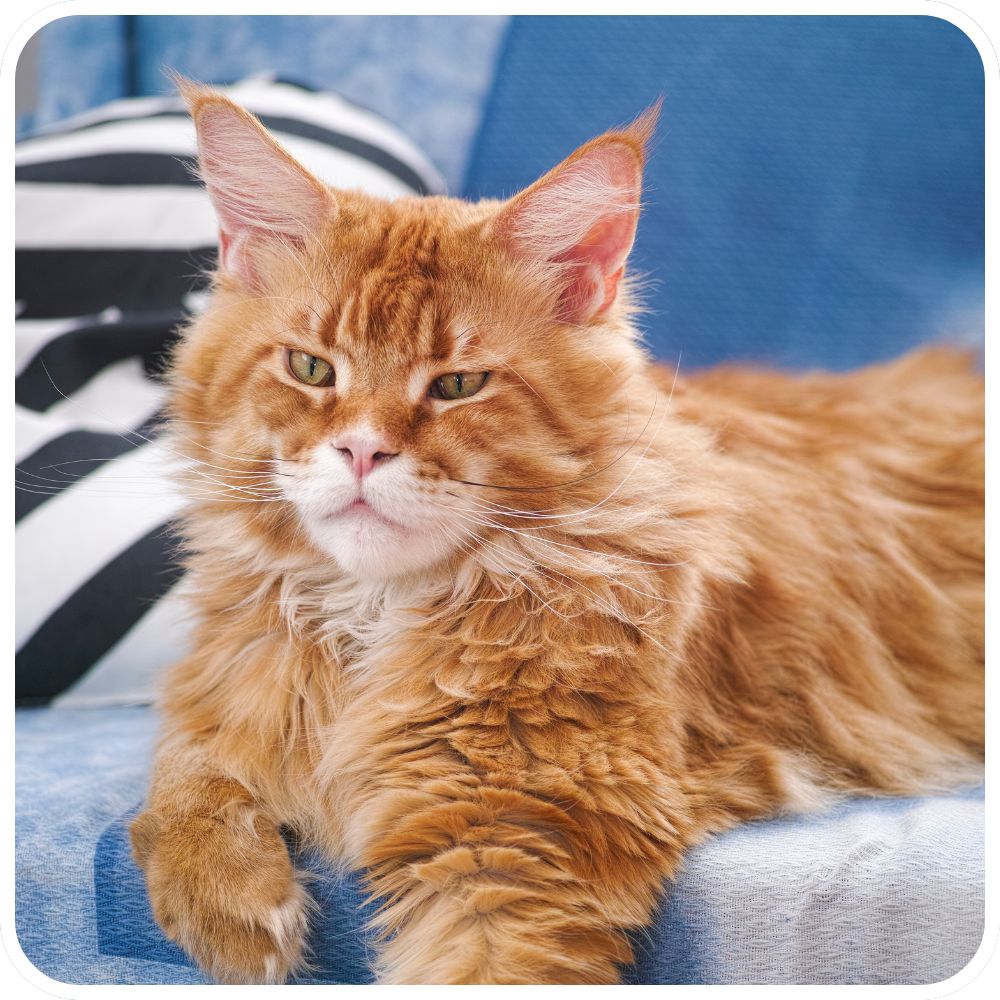
Understanding Maine Coon weight is crucial for maintaining the health and happiness of these gentle giants.
This includes tracking kitten growth and size, recognizing signs of being overweight or underweight, and knowing the ideal weight range for this breed.
As the largest domesticated cat breed, Maine Coons can raise many questions regarding their size.
A healthy adult Maine Coon typically weighs between 10 to 25 pounds, depending on their gender and genetics.
It's important to monitor your cat's weight to prevent health issues associated with obesity or malnutrition.
Regular exercise and physical activity are key to keeping your gentle giant at a healthy weight.
Providing opportunities for play, climbing, and exploring can help prevent weight gain and promote overall well-being.
If your cat is overweight, gradual weight loss through a balanced diet and increased activity is recommended.
Underweight Maine Coons: Weight Loss & Appetite Problems
On the other hand, you shouldn’t see their ribs or spine sticking out. If your cat feels bony or is losing weight, it’s important to figure out why.
Weight issues can be tricky, but they don’t have to be a mystery. Let's look at what’s normal, when to worry, and how to help your cat maintain a healthy size.
Adding You Your Maine Coon Family?
<< The Care & Keeping Of Your Maine Coon is the ultimate guide to all the breed-specific needs of your Coonie. This unique breed has unique needs! A must-have.
Oral And Dental Health
When it comes to Maine Coon cat health, dental and oral care are very important, but easy to forget about!
Cat Oral Care
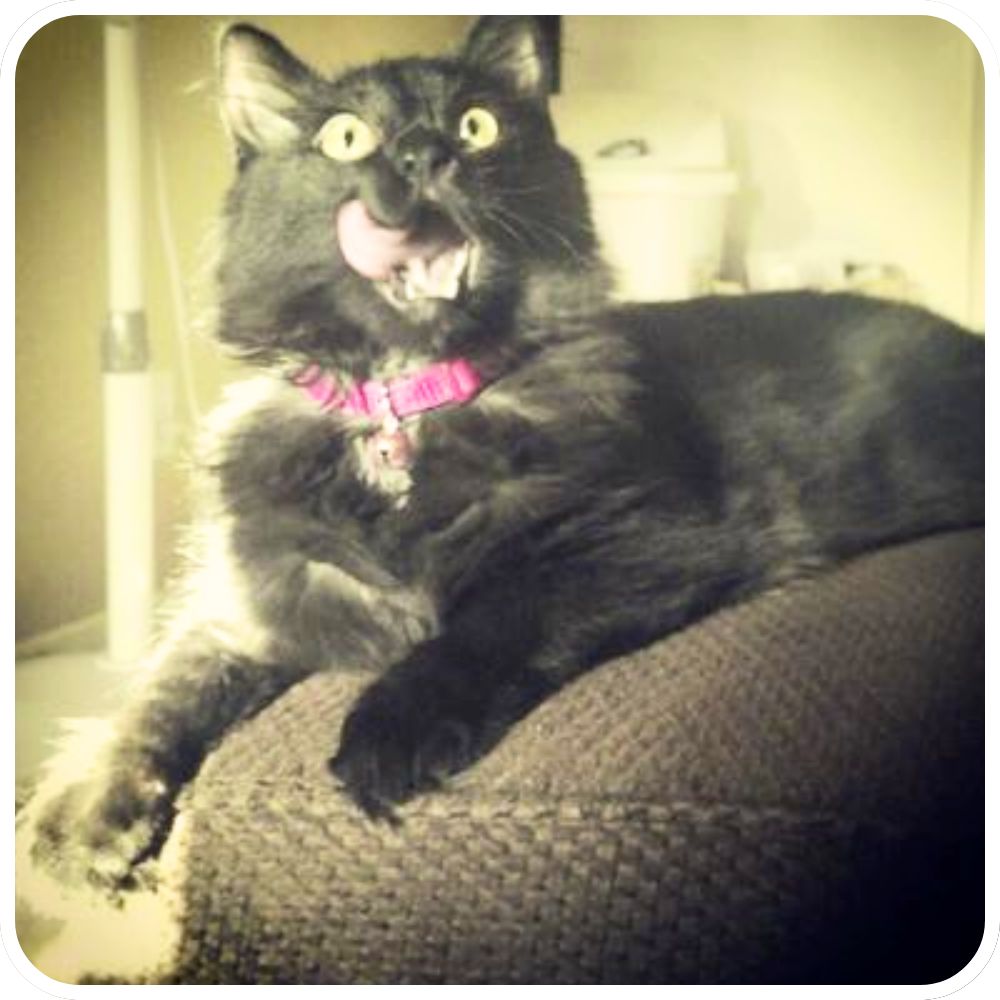
Cat Oral Health Care
Cats are great at hiding discomfort, and they dislike anyone prying their mouth open, so this is an easy cat care area to forget about.
Have you been wondering if you should brush your cat's teeth? What about those dental cleanings at the vet's office?
Let's go over the basics of Maine Coon cat oral care.
Feline Dental Problems
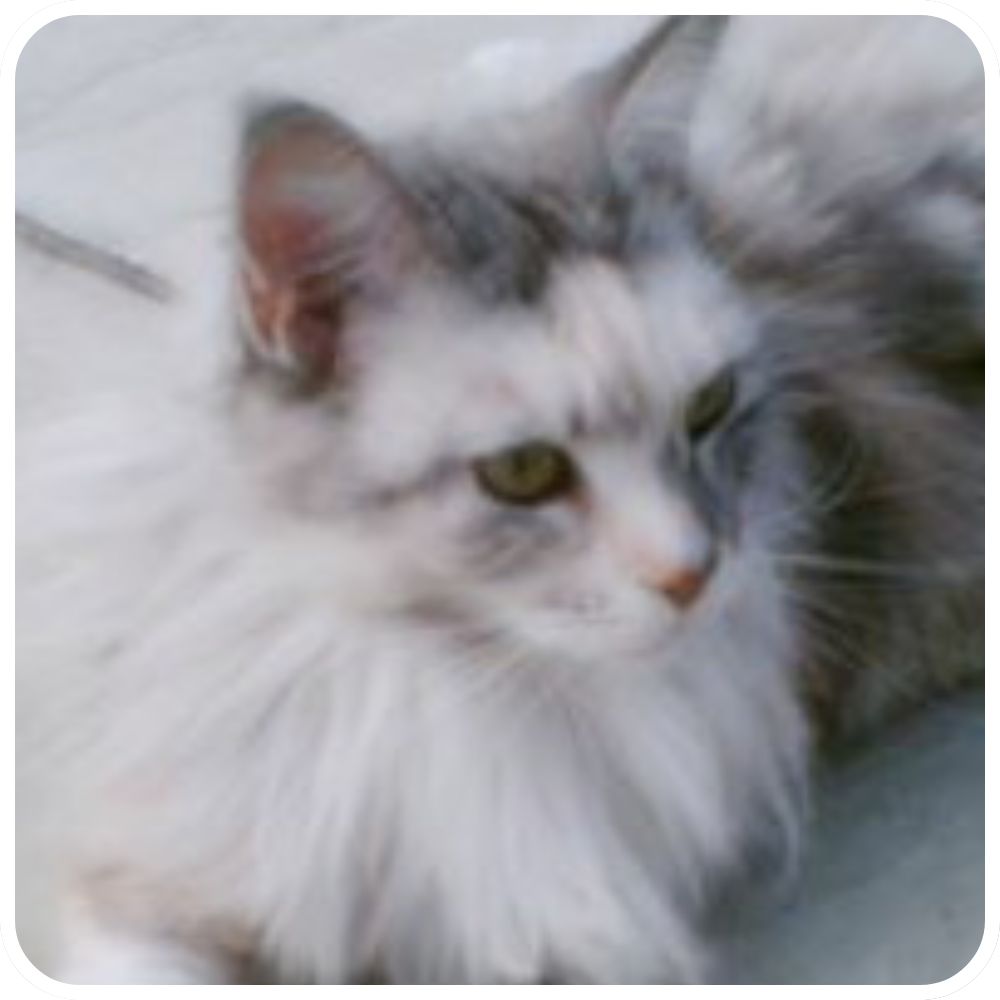
Cat Dental Problems
When it comes to cat dental problems, most of us think of feline gingivitis.
This is one of the more common cat health issues, but there are others as well.
Even with diligent dental care, cat tooth problems can surface.
Visit this page to learn about gingivitis in cats, periodontal disease, polyps, ulcers, lesions, tumors and more. This is an overview of sign, symptoms, and treatments.
Common Feline Health Concerns
Some health concerns may happen during your journey as a Maine Coon parent. If and when they do, you'll be ready!
Cat Heat Stroke

Heat Stroke In Cats is a very real and serious concern, especially during the warmer months when temperatures can soar.
As we find ways to cool off and stay healthy during heat waves, it's important to remember that our feline friends are also vulnerable to the dangers of high temperatures.
Cats can suffer from heat stroke when their body temperature rises above normal levels and they are unable to cool down.
Signs of heat stroke in cats include excessive panting, drooling, lethargy, vomiting, and a rapid heartbeat.
In severe cases, it can lead to collapse or even death if not treated promptly.
To prevent heat stroke, ensure your cat has access to plenty of fresh water and a cool, shaded area to rest.
Avoid strenuous activities during the hottest parts of the day and never leave your cat in a hot, enclosed space like a car.
If you suspect your cat is experiencing heat stroke, move them to a cooler environment immediately and contact your veterinarian for further advice.
By taking these precautions, you can help protect your cat from the dangers of heat stroke and keep them safe and healthy during the warmer months.
Maine Coon Cat Health As They Age
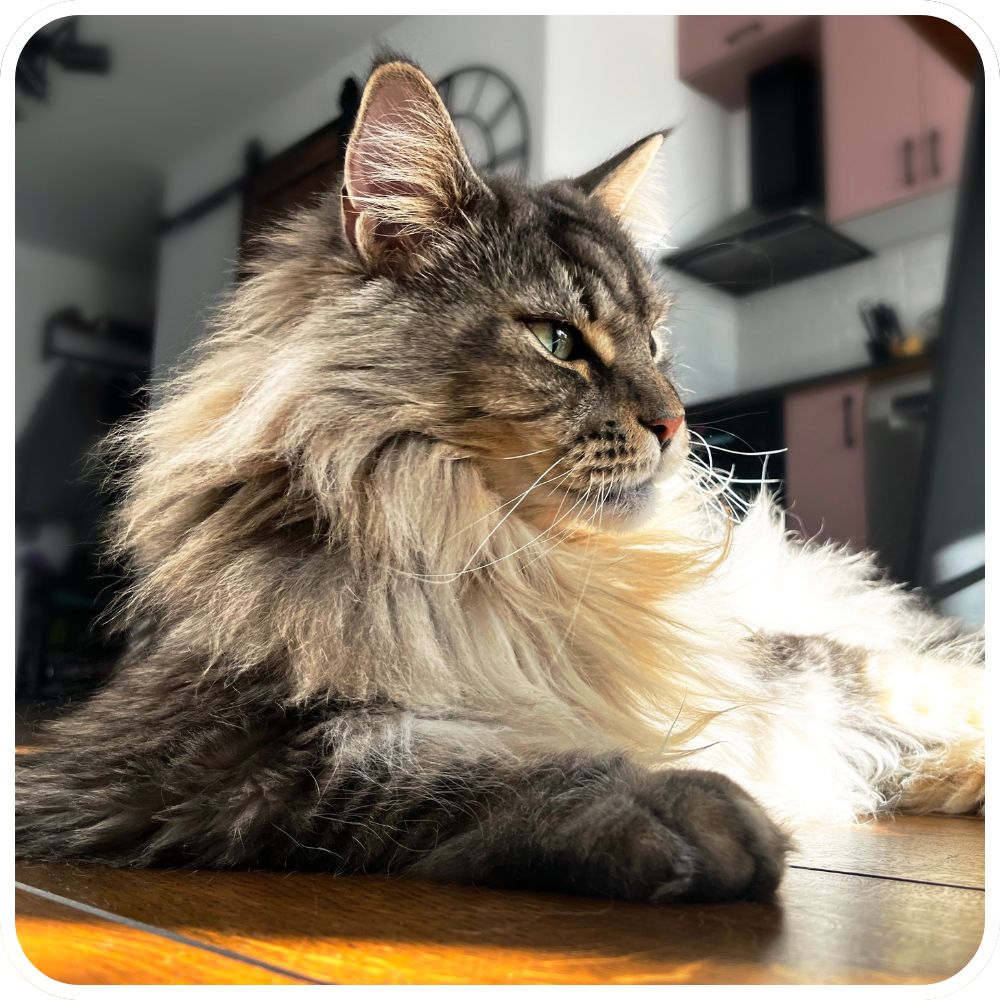
Elderly Cat Health Problems
Are you caring for an elderly cat? It's terrific to see a cat live so long.
It's a tribute to the wonderful care they've received. What kind of things do you need to know now?
Your beloved family member has been with you for many years, and it's more important than ever to be aware of potential elderly cat health problems.
Diarrhea in Kittens
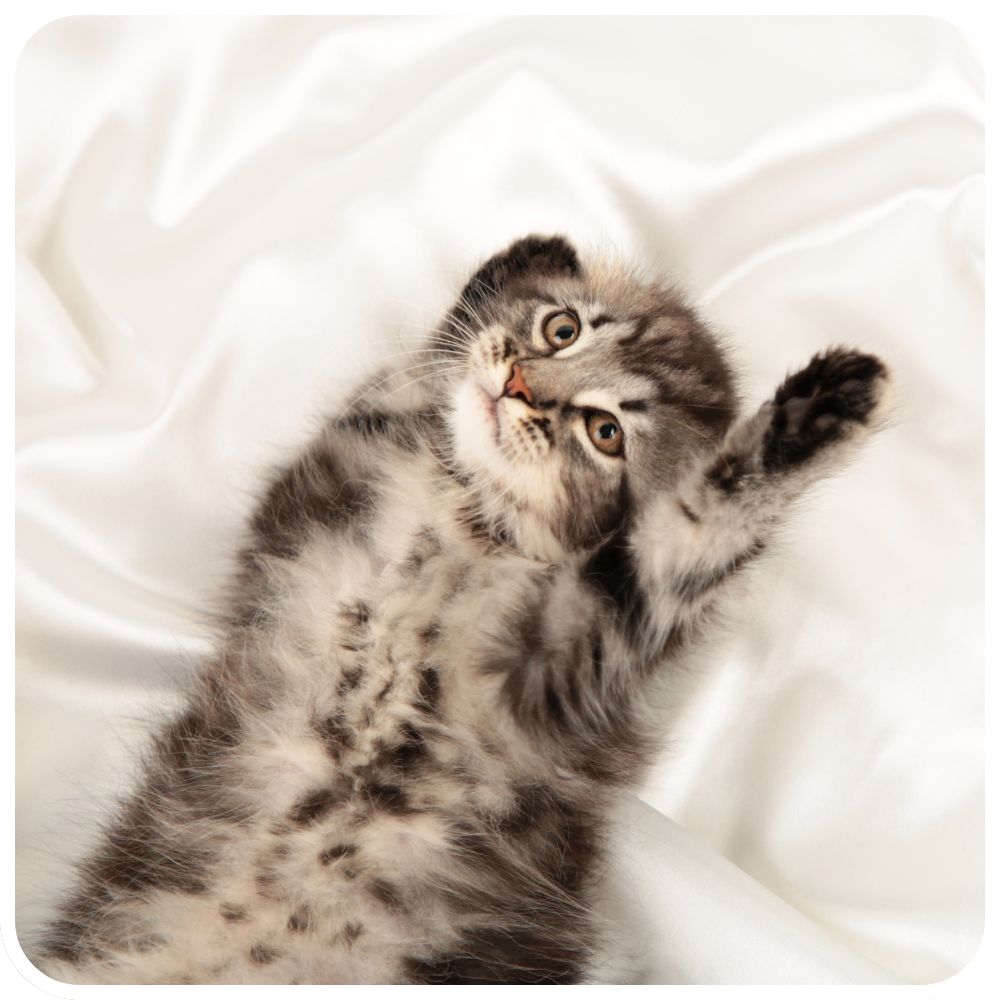
Kitten Diarrhea
Diarrhea in Maine Coon kittens can be both alarming and messy, but understanding the common causes can help you manage and treat it effectively.
Several factors can lead to diarrhea in kittens, including dietary changes, infections, parasites, and stress.
Sudden changes in diet, such as switching to a new type of food, can upset a kitten's sensitive digestive system.
Infections, whether bacterial, viral, or fungal, can also cause gastrointestinal distress. Also, internal parasites like worms are a common cause of diarrhea in young cats.
Stress from a new environment, changes in routine, or the introduction of new pets can also contribute to digestive issues.
If your kitten is experiencing diarrhea, it's important to monitor them closely. Certain foods may help diarrhea. Ensure they stay hydrated by providing plenty of fresh water.
If the diarrhea persists for more than a day or is accompanied by other symptoms like lethargy, vomiting, or a loss of appetite, consult your veterinarian.
Around The House
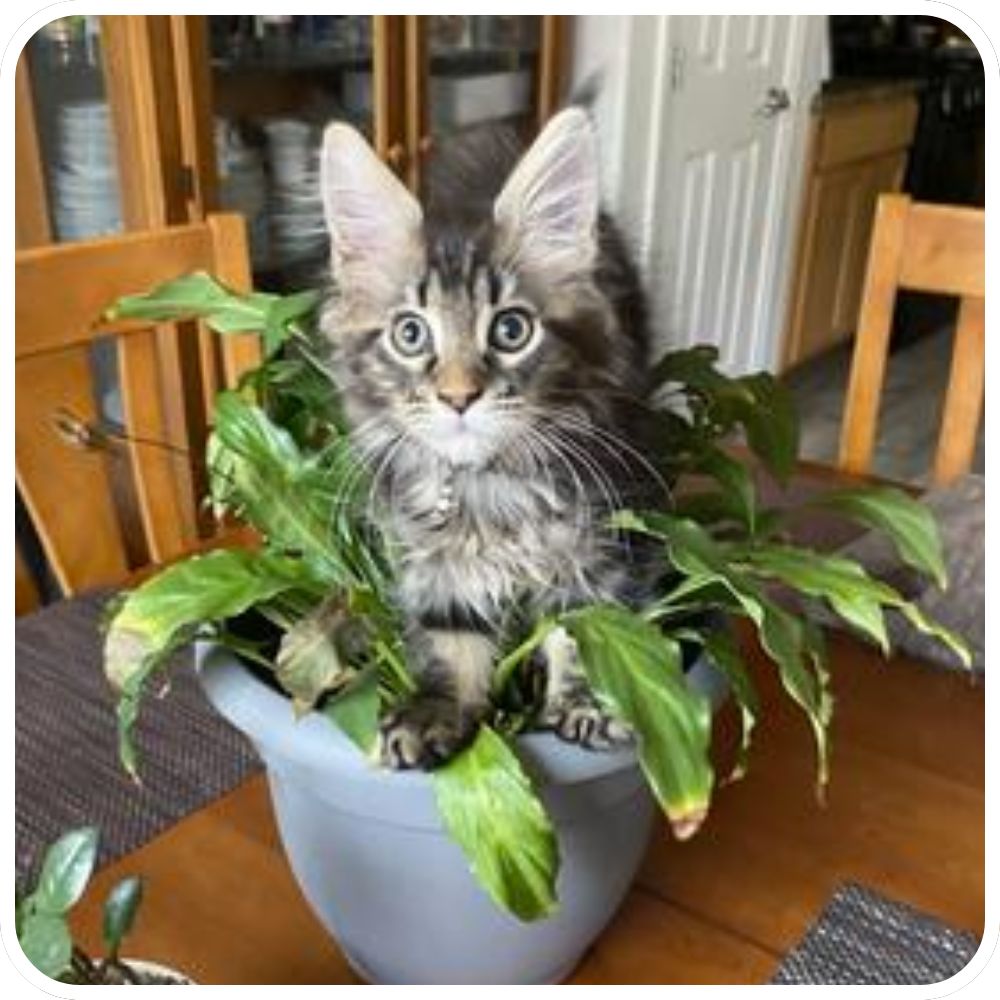
Cat Poisons And Toxins
Are you worried about cat poisons and toxins?
There are many potential hazards, including toxic plants, chemicals, and household items, that can pose a threat to your cat's health.
Understanding these dangers and knowing how to respond can help you protect your feline friend.
Common toxic plants include lilies, poinsettias, and philodendrons, which can cause severe reactions if ingested.
Household chemicals like cleaning agents, antifreeze, and pesticides are also dangerous.
Even certain human foods, such as chocolate, onions, and grapes, can be toxic to cats.
To prepare for potential poisoning scenarios, follow these steps:
- Identify Hazards: Familiarize yourself with common cat poisons and remove or secure them in your home.
- Create a Safe Environment: Keep toxic plants out of reach, store chemicals in locked cabinets, and be cautious about human food access.
- Know the Signs: Symptoms of poisoning can include vomiting, drooling, difficulty breathing, and seizures. Recognizing these signs early is crucial.
- Emergency Plan: Have your veterinarian's contact information readily available, along with the number for an emergency animal poison control center.
By taking these precautions, you can reduce the risk of poisoning and be prepared to act quickly if an emergency arises, ensuring your cat's safety and well-being.
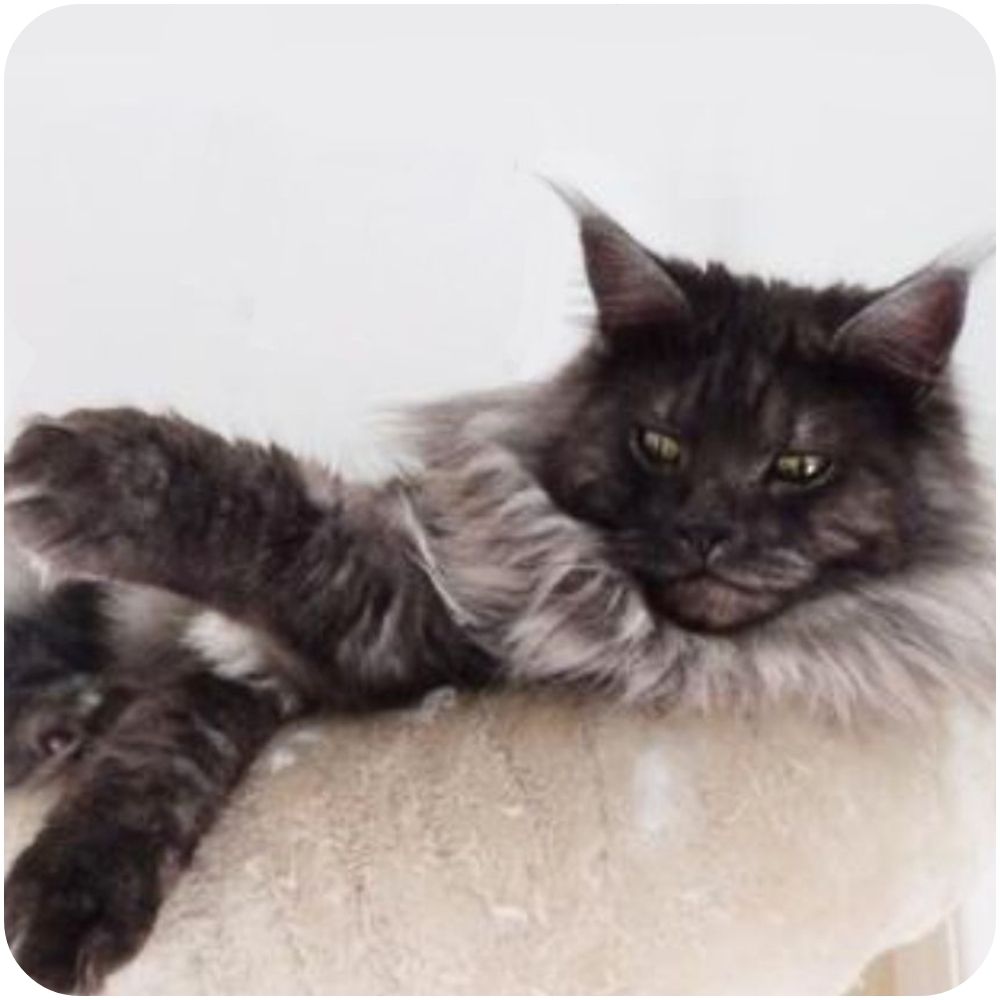
Can cats get seasonal allergies? Just like humans, cats can suffer from allergies.
While they might not complain about hay fever, they can experience discomfort - and recognizing these signs can make all the difference for your feline friend.
Urinary tract infections can be a frustrating and concerning issue for pet owners.
This page dives into the signs, causes, and prevention of UTIs, while also sharing personal stories and tips from other owners who have faced similar challenges.
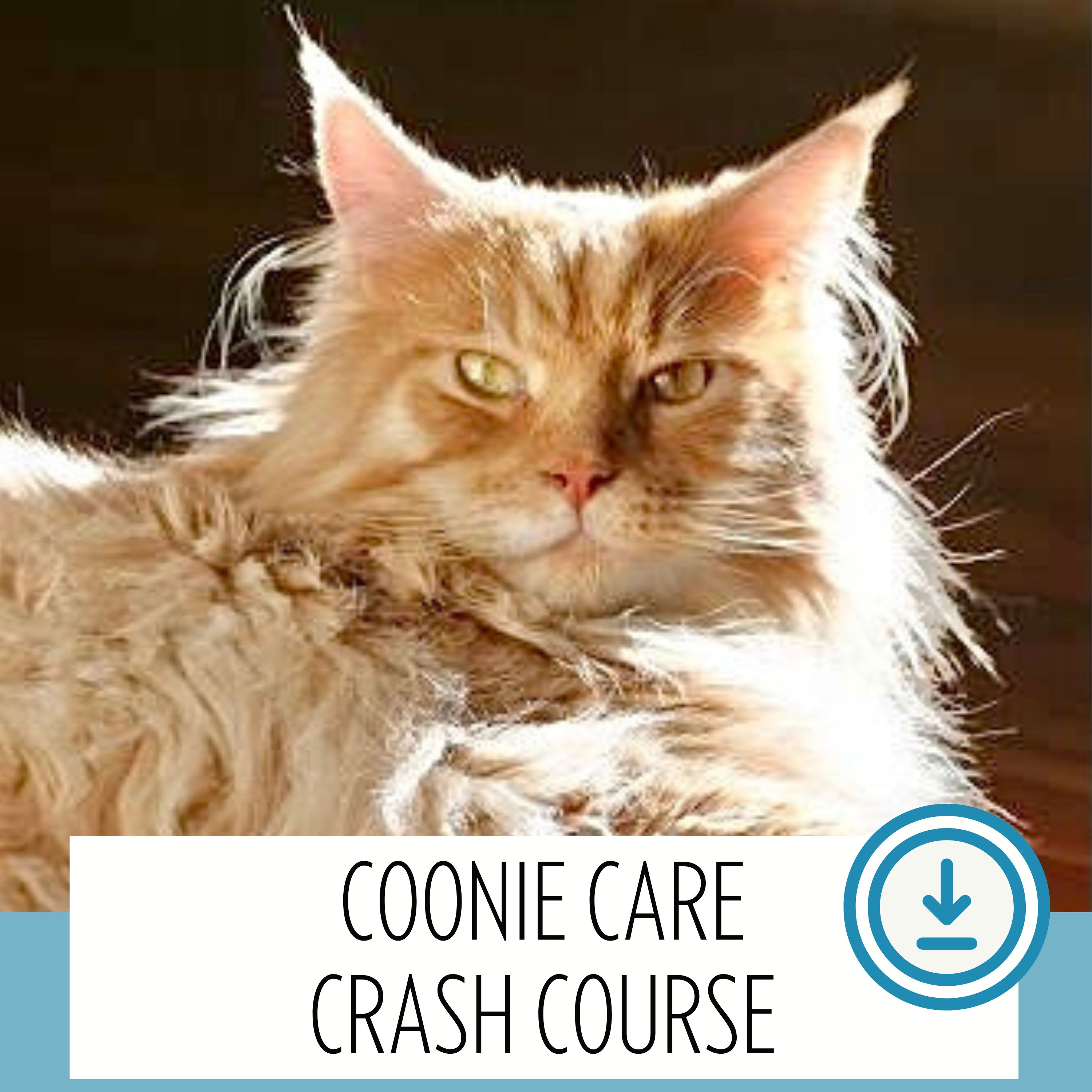
Fleas and Flea Control
Dealing with fleas and parasites is a part of pet ownership for any breed.
A Maine Coon's long, thick fur can make it more of a challenge to deal with, and prevention is key!
Fleas on Cats
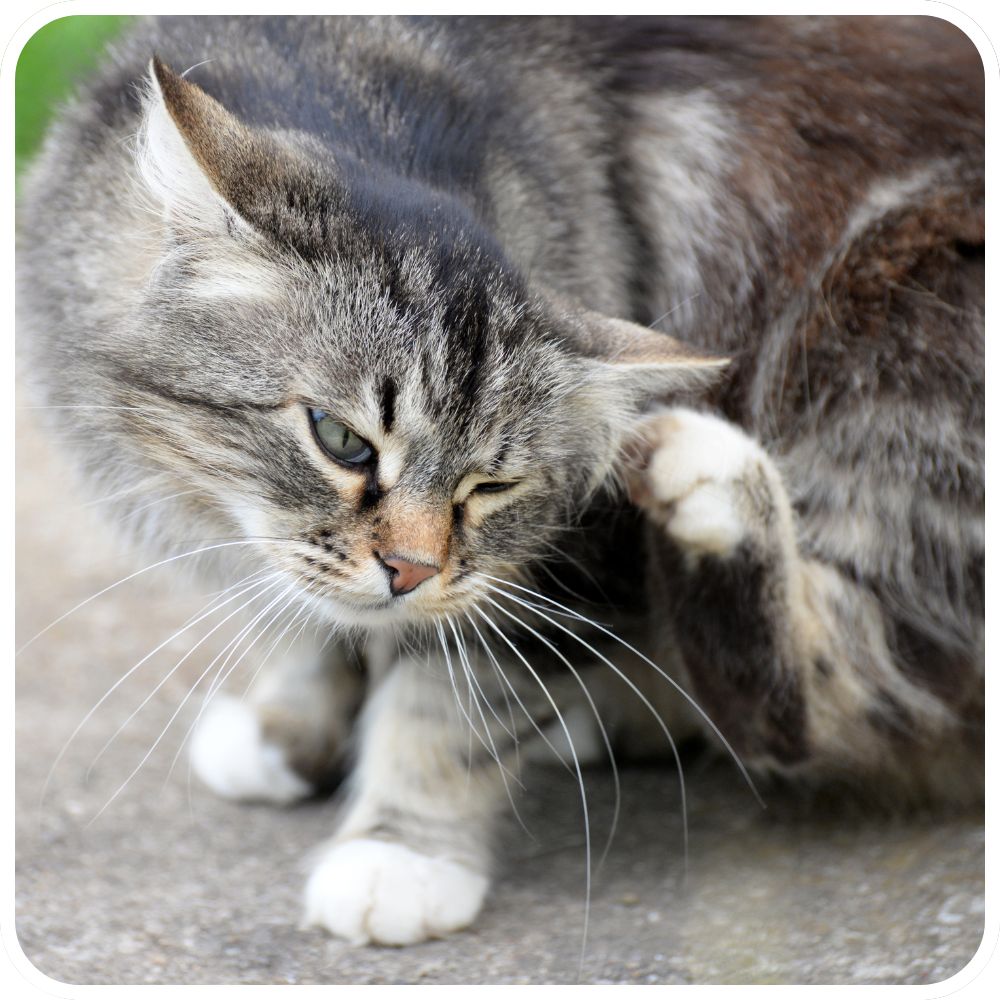
Fleas On Cats: Top 8 Facts and Tips
Discover practical facts about fleas on cats and effective tips to eliminate them.
Fleas are a common and troublesome issue for many cats and their owners.
This informative page provides essential insights into managing flea infestations, including lesser-known facts that can help you better understand and combat these pests.
From identifying flea symptoms to implementing effective treatment strategies, you'll find valuable information to protect your cat's health and comfort.
Explore the top 8 facts about fleas on cats and learn proven tips to rid your feline friend of these persistent parasites.
Fleas and Flea Control Reader Q & A's: Our community discusses various aspects of treating for, and getting rid of these pests.
Dealing With Fleas

Fleas In The House
Trying to eliminate fleas in your home, whether or not you have pets, can be incredibly frustrating.
Fleas are persistent and challenging to eradicate, but with the right approach, you can succeed.
This comprehensive page provides a wealth of information on effective flea control strategies.
You'll find detailed guidance on treating your pets, cleaning your home, and preventing future infestations.
Ready to tackle the problem? Dive in to discover practical tips and a step-by-step game plan to get rid of fleas and keep your environment flea-free.
Flea Life Cycle
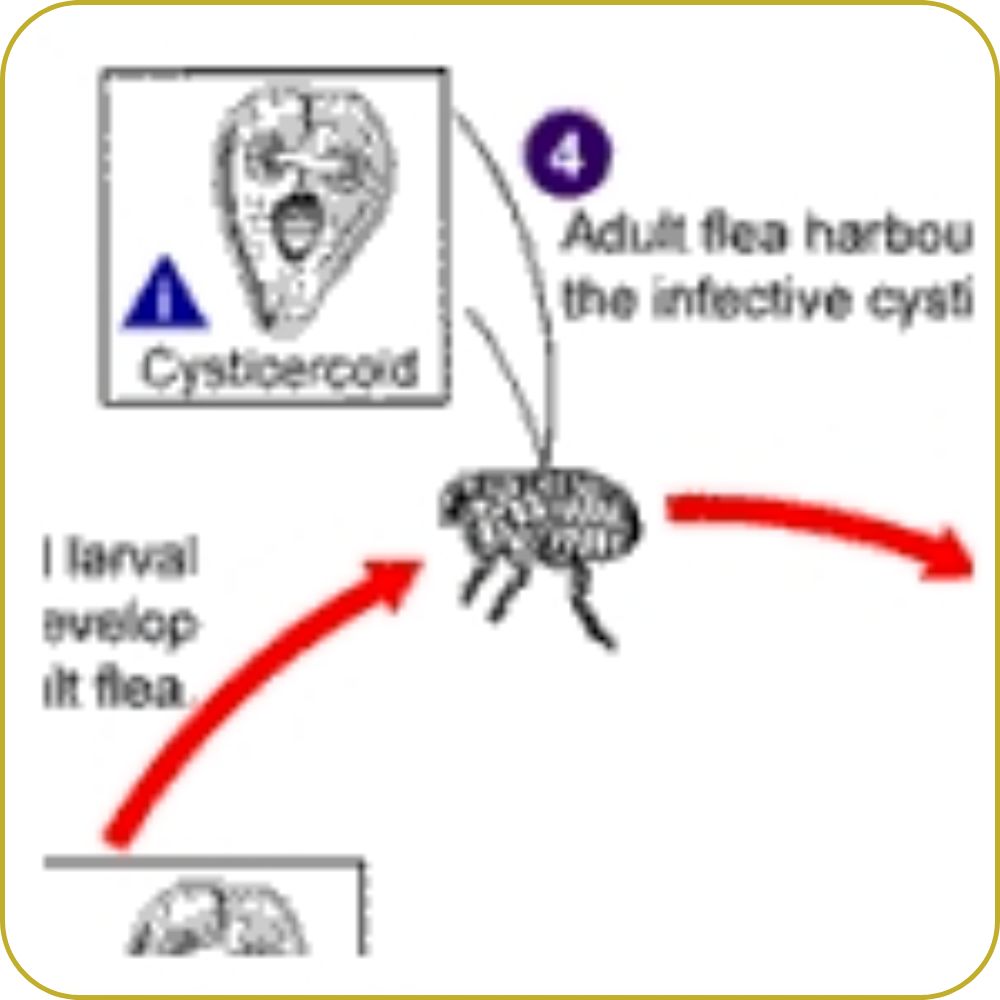
Life Cycle Of A Flea
The key to effectively combating fleas lies in understanding their life cycle.
If you've struggled with recurring flea problems despite trying various treatments, knowing their life cycle can provide crucial insights.
Fleas go through several stages: egg, larva, pupa, and adult. Understanding these stages helps explain why fleas can reappear even after seemingly thorough treatments.
Effective flea control involves targeting all stages of the life cycle, from treating pets and their environment to preventing future infestations.
By knowing how fleas develop and persist, you can implement more targeted and successful strategies to keep them at bay.
Using Vinegar to Combat Fleas: Fact or Fiction?

Have you heard that vinegar kills fleas? This page provides comprehensive insights into this popular home remedy.
Discover the different methods and types of vinegar recommended for flea control, as well as their effectiveness.
Whether it's apple cider vinegar or white vinegar, learn how these solutions are applied and their potential benefits in managing flea infestations.
Get informed about the pros and cons, practical tips, and considerations when using vinegar to address fleas on your pets and in your home.
Explore the truth behind this method and decide if it's the right approach for your flea control efforts.
Cat Parasites Information
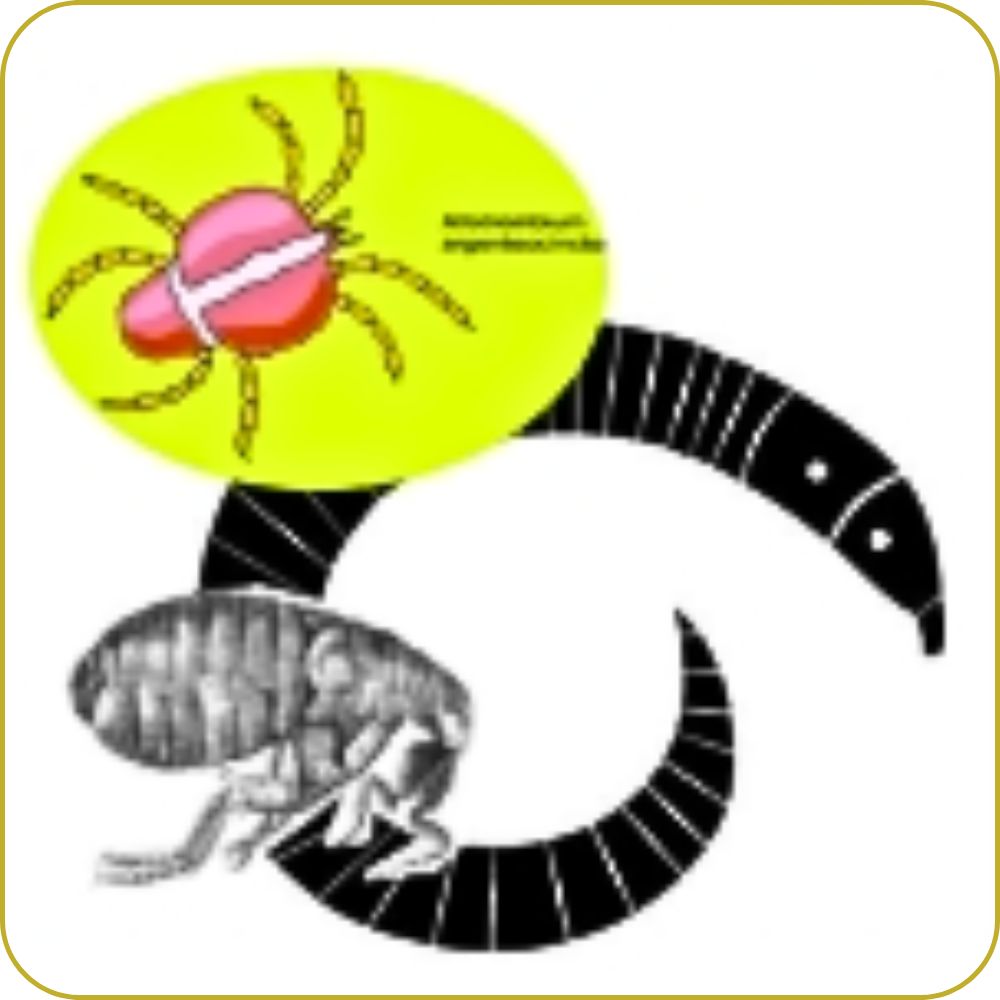
Cat Parasites
Fleas, ticks, worms, and other parasites, like feline Giardia, are a very unpleasant subject, but dealing with them is crucial for your cat's health.
These pests pose significant health risks, including infections, anemia, and even disease transmission.
Proper care and regular preventative measures are essential to keep your cat parasite-free.
Regular vet check-ups, flea and tick treatments, and deworming schedules help maintain your cat's health and well-being.
By staying vigilant and proactive, you can protect your feline friend from these common health threats and ensure they remain happy and healthy.
Your Maine Coon Cat Health Concerns:
Health Related Questions and Answers:
This collection of health & medical concerns should be brought to the vet.
Bloody stools, lack of appetite, joint problems, mouth ulcers and more are asked about here.
Reader Maine Coon Cat Health Questions:
Fur Loss in Cats: Fur loss in cats is quite concerning. These kitties are grooming themselves excessively and losing fur. Their owners are seeking help and community advice.
These Cat Health Questions from our readers include in-breeding, dry skin, lack of appetite health concerns. See our community answers and discussions here.
There are health concerns and questions that can affect any breed or individual cat. Proper cat care is essential for maintaining your cat's health for years to come.
What can you do to keep your cat in top shape? Many cat owners proudly declare that their feline companions have lived for 15-20 years, sometimes even longer!
The information in these sections provides a starting point for understanding cat health.
Maine Coon cat health, like that of all breeds, is a vital part of caring for both cats and kittens.
As you explore these sections, remember to consult your vet for the final word on any common health issues you may encounter.
Your vet, with their passion for pet health, is always ready to help with your concerns.
Building a good relationship with your vet is one of the best gifts you can give your cat’s life. We all want our beloved pets to live long and happy lives.
Addressing common cat health questions is important. Some cat breeds have genetic diseases and potential health issues that are essential to know about.
Understanding these issues is crucial when choosing a breed.
It's also wise to discuss any health concerns with your reputable breeder to ensure your new kitten is off to the best start.
Top of Maine Coon Cat Health
Recent Articles
-
Will a Maine Coon Protect Its Owner From Danger or an Intruder?
Apr 09, 25 10:41 PM
Plenty of people are curious: Will a Maine Coon protect its owner if something happens? Let’s talk about what this means, and what kind of protector a Coonie is. -
9 Types of Maine Coon Cats and How to Tell Them Apart
Apr 09, 25 03:58 PM
When people say "types of Maine Coon cats," they're usually talking about color. But as Coonie lovers know, there’s a lot more to it than that! From wild-looking European lines to polydactyl paws and… -
10 Questions to Ask a Breeder Before You Commit
Apr 08, 25 03:51 PM
Here are some important conversation starters and questions to ask a breeder that can help you feel confident about where your future furbaby is coming from. This is a big decision - whether you're le…
